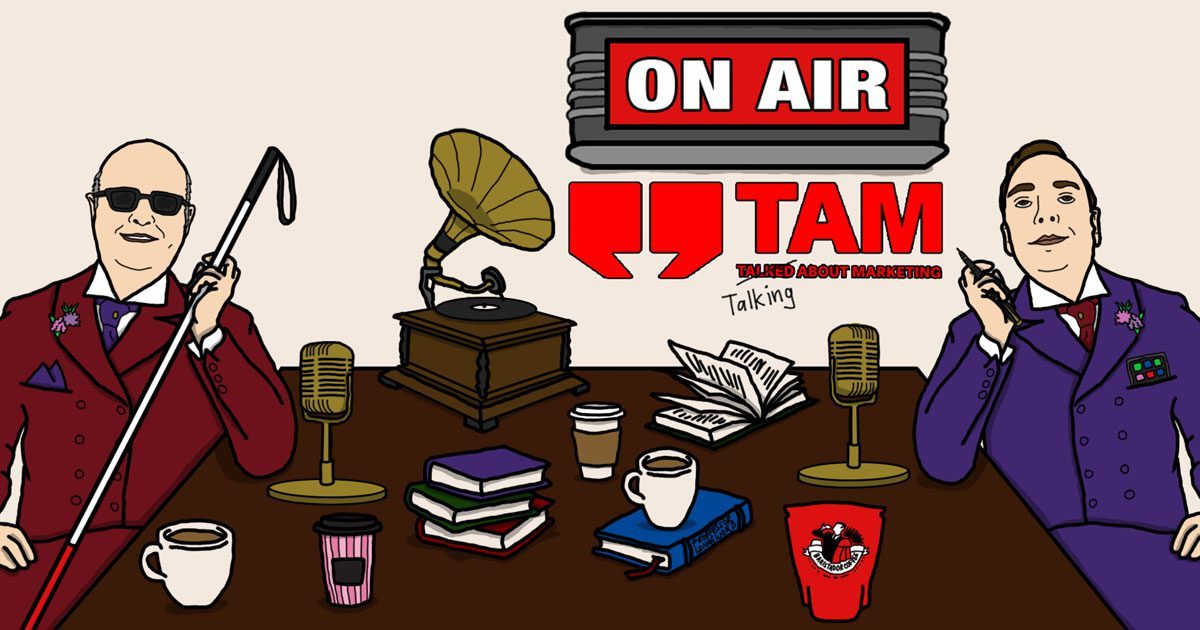The secret to planning well is to understand that planning does not come naturally; being an expert in one field does not mean we have expertise in planning
In this episode of Talking About Marketing, we ask, why planning often fails and the short answer is that it often boils down to the planning fallacy. David explains all through the lens of Grand Designs host, Kevin McCloud.
For our first segment, however, Steve taps into the story of the Emu, as told by Tyson Yunkaporta in his book, Sand Talk: How Indigenous Thinking Can Save the World. It's a helpful way of understanding toxicity in workplace relationships.
In the mailbag segment, Steve shares a question about dealing with logins; where and how to store them.
And for a dose of perspicacity (the sharpening of our minds), David asks us to THINK about the THINK commercials run by IBM more than 20 years ago. Oh, how less fraught our digital world was back then!
We hope you find this helpful.
Episode show notes with timecodes
01:35 Person This segment focusses on you, the person, because we believe business is personal.
How to think better
Sand Talk: How Indigenous Thinking Can Save the World, is a thought-inspiring book by Tyson Yunkaporta. Tyson is described by some as an Aboriginal philosopher, and Steve draws an intriguing inside from the creation story Tyson shares in his book about the Emu.
The story suggests that the Emu (with a capital E) is the world’s original malignant narcissist, and we've probably all run into people like that in work and play.
As Steve shares, Tyson recounts the Emu story from Nyoongar Elder, Noel Nannup, in Perth, in which, "all the species sat down for a yarn to decide which one would be the custodial species for all of creation. Emu made a hell of a mess, running around showing off his speed and claiming his superiority, demanding to be boss and shouting over everyone.”
As is explained in the book, it takes the whole tribe or office or community to manage narcissists; it's almost impossible to deal with them by yourself.
10:04 Principles This segment focusses principles you can apply in your business today.
The Planning Fallacy
At the time of recording this episode, Steve and David were putting together another planning day, this time for a not-for-profit organisation in the health sector, so we decided to share some of the thinking and principles behind our planning sessions.
The key insight upon which our planning workshops are based is captured in "the planning fallacy", as proposed by Daniel Kahneman and Amos Tversky in 1979. It can be summarised, thus:
The planning fallacy describes our tendency to underestimate the amount of time it will take to complete a task, as well as the costs and risks associated with that task—even if it contradicts our experiences.
Coupled with this, David explains how this fallacy is exacerbated by the fact that we overestimate our planning abilities.
As David argues, there are not many professions in the world that actually train people to plan from first step to end of project, and even in those professions that do plan, more often than not they end up with too much of a fixation on the plan, and not enough awareness of reality.
The trick with planning is approaching it with the right mindset, which means being able to say it's iteration number one, and then when things change, feeling comfortable in adapting the plan into iteration number two, and so on.
It's a fascinating topic of discussion and we hope you'll one day get the chance to have us lead a planning session for you.
24:39 Problems This segment answers questions we've received from clients or listeners.
Where are my website logins?
Steve shared an email from a long-time client and friend in Darwin, Jon, from Dunwrights Electrical. He wrote: Hi Steve. I looked for the login for dunwrights.com.au and was unable to find it.
Jon is in a much better place than most small business people because he's not using his browser to remember passwords, but working out the solution that is best for him in a process he continues to interate.
Steve reflects on this and gives a solid plug for password keeping software - especially timely in relation to the Optus Network hack.
29:33 Perspicacity This segment is designed to sharpen our thinking by reflecting on a case stude from the past.
Think IBM - was focussed on big things
For this segment, we cast our minds back to the IBM Think ads that are more than 20 years old.
IBM managed to change from selling people desktops to solving people's problems.
HINT: Success doesn't come from how you make something but from how you solve people's problems.
Would it work today?
You'll have to listen to the episode to get our verdict.

